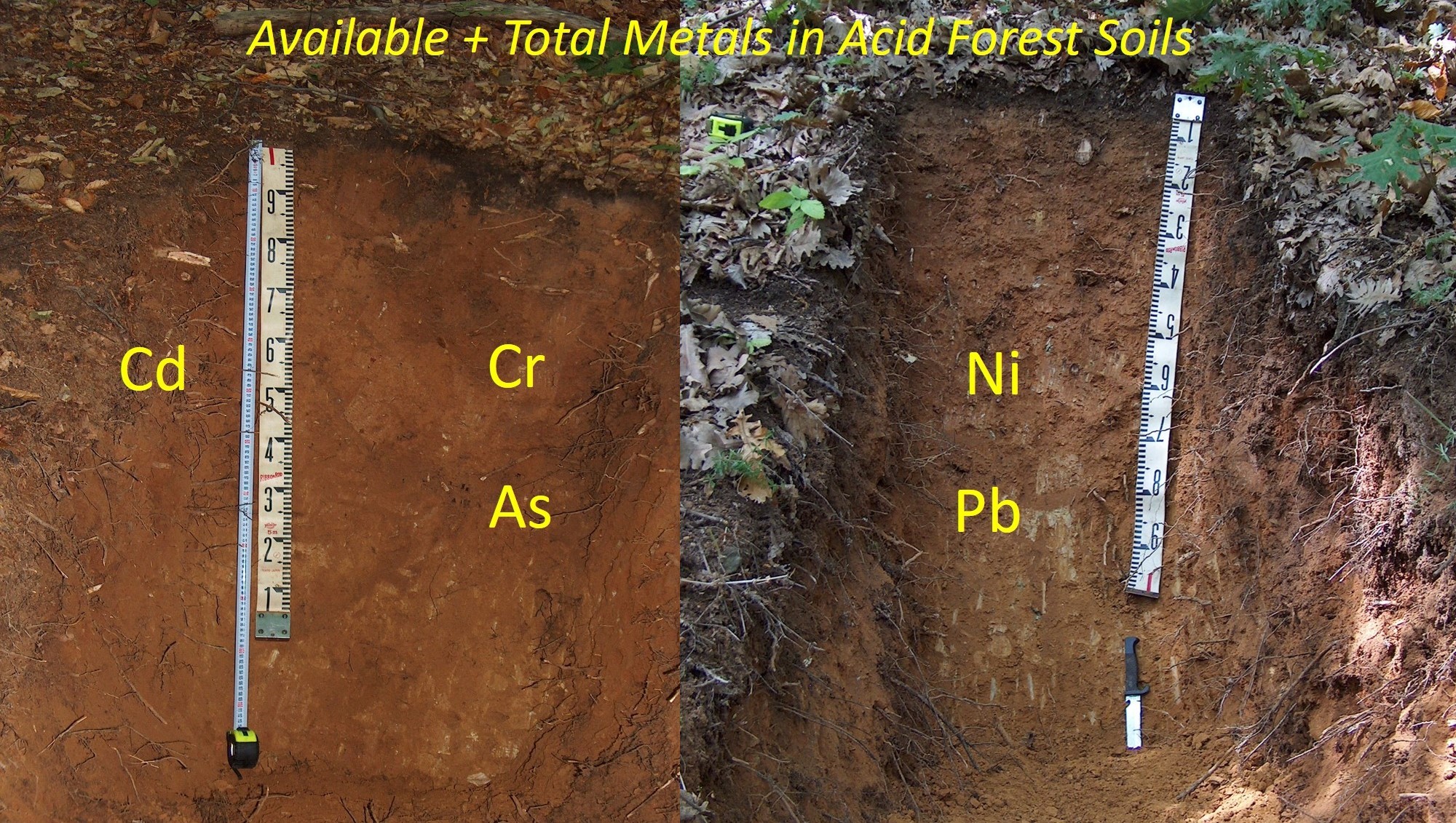
The concentrations and comparisons of total and available metals Cd, Cr, Ni, Pb and the metalloid As were examined in two adjacent acid forest soils in Greece under oak and beech together with the dependency of their availability. It was found that the soil in the beech plot had higher concentrations of total elements with the exception of the litter layer (L) where most metals did not differ. It is probable that the parent material of the beech soil contained some metamorphic mafic material. The surface soils for both stands were moderately enriched with Pb, Cd and As, whereas for Cr and Ni the enrichment was minimal. The concentrations of available elements (extracted with DTPA) were higher in the beech soil. The availability of most metals was affected by the pH, the organic C, the ratio of C/N and the total concentration of the metals. Through a Principal Component Analysis (PCA) analysis, it was found that 63-75% of the concentrations variance of the available metals was explained. The percentages of available metals with regard to their total concentrations in soils were higher in the beech plot in the FH layer but in the mineral layers, they did not differ apart from Pb. The concentrations of the metals in the leaves of both species in three consecutive years did not differ with the exception of Cd, the concentration of which was higher in the beech leaves.
Total file downloads: 7